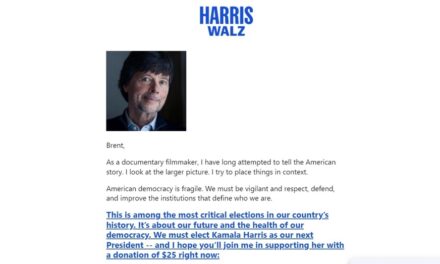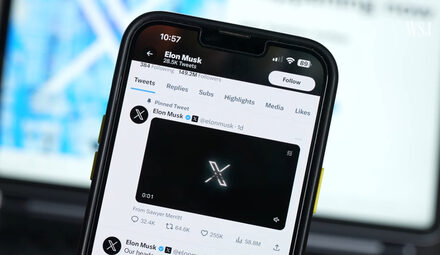We support our Publishers and Content Creators. You can view this story on their website by CLICKING HERE.
Appearing as a guest on Tuesday’s Morning Joe on MSNBC, author Ta-Nehisi Coates — who became famous as a writer forThe Atlantic — complained about the way Israelis treat Palestinians and compared it to Jim Crow, declaring that he wished people paid more attention to Gaza before the October 7 terrorist attack.
As BBC’s Katty Kay took part in asking questions to Coates as part of the show’s panel, she brought up his history of criticizing Israel and his reaction to October 7:
So, for this book, you also went to Israel, and you have been very critical of the Israeli — Israel’s treatment of the Palestinians. Can you put it in the context — I’m not sure whether you went for this trip for the reporting before or after October the 7th, but put it — put what you found in the context of those attacks.
He responded:
Look, my politics are the politics of nonviolence. There is nothing within that politics that can watch 1,000 people be murdered — be massacred and be okay with that and think that that is somehow justified. The only thing I would add to that which I think — which I will insist on and think is very, very important. I wish that this country was more interested in Gaza before October 7th. Gaza was described to me while I was over there as the largest open air jail in the world. Like I said, I did not see it for myself. I wanted to — I was not able to. But we’re part of that. We’re part of the maintenance of that. We’re part of the maintenance of that. And evidence of that fact was everywhere around me during my trip.
MSNBC’s Symone Sanders-Townsend, who was also taking part in the Morning Joe panel, pushed back:
You know, people will say — I mean, the conversation around the — just the region prior to October 7th is that it is complicated. People say, “Oh, it’s not as black and white,” as folks try to make it seem complicated. There’s nuance there, but you write that what you saw reminded you of the Jim Crow South. There are people who would say this is not that.
Coates responded by misleadingly referring to some roads in the West Bank that only Israeli citizens are allowed to use:
I would tell them to go. I would tell them to go. I would tell them, “Drive down the roads in the West Bank where you are only allowed to go certain places if you’re either Palestinian or you’re an Israeli settler. I would tell them to go to Hebron and watch how people whose ancestors have lived there for generations cannot walk down certain streets….
I would ask them whether they think it’s okay for a state to label itself as the only democracy in the Middle East and erects citizenship for one-half of its population and for the other half to erect a kind of citizenship or a residency or a stateless status that is somehow less.I don’t know how that corresponds with our definitions of what a democracy is. It was immediately familiar to me as somebody who has been raised on the tales of Jim Crow and whose parents were born into Jim Crow.
He did not mention that Palestinians who are Israeli citizens are allowed to use the roads or that restrictions were introduced because terrorists were using the roads to attack Israelis. Most Arabs who actually live within Israel are either Israeli citizens or are eligible to apply for citizenship but choose not to, Coat
Most Palestinian Arabs who live in the West Bank or Gaza Strip are living in disputed territory that has never been annexed by Israel, so it would not make sense to grant a right to vote in Israeli elections. These are the areas that would already be part of an Arab state if the Palestinian leadership had not repeatedly rejected two-state solution proposals by past Israeli governments.
Transcript follows:
MSNBC’s Morning Joe
October 1, 2024
7:30 a.m. Eastern-
KATTY KAY: So, for this book, you also went to Israel, and you have been very critical of the Israeli — Israel’s treatment of the Palestinians. Can you put it in the context — I’m not sure whether you went for this trip for the reporting before or after October the 7th, but put it — put what you found in the context of those attacks.
TA-NEHISI COATES: Yeah, I did. It was made 2023, and, like I said, I went to the West Bank — I went to, you know, cities throughout Israel. I went to Haifa, Jerusalem, Tel Aviv, South Hebron Hills, Ramallah. And the one thing that people told me the whole time I was there was, “You have to go to Gaza.” That turned out to be a lot more difficult than I wanted. It was 10 days. And then, when I came back, I was trying to, you know, get back. I was supposed to go in October, and, you know, for obvious reasons, I, you know, I could not go. Look, my politics are the politics of nonviolence. There is nothing within that politics that can watch 1,000 people be murdered — be massacred and be okay with that and think that that is somehow justified.
The only thing I would add to that which I think — which I will insist on and think is very, very important. I wish that this country was more interested in Gaza before October 7th. Gaza was described to me while I was over there as the largest open air jail in the world. Like I said, I did not see it for myself. I wanted to — I was not able to. But we’re part of that. We’re part of the maintenance of that. We’re part of the maintenance of that. And evidence of that fact was everywhere around me during my trip.
SYMONE SANDERS-TOWNSEND: You know, people will say — I mean, the conversation around the — just the region prior to October 7th is that it is complicated. People say, “Oh, it’s not as black and white,” as folks try to make it seem complicated. There’s nuance there, but you write that what you saw reminded you of the Jim Crow South. There are people who would say this is not that.
COATES: I would tell them to go. I would tell them to go. I would tell them, “Drive down the roads in the West Bank where you are only allowed to go certain places if you’re either Palestinian or you’re an Israeli settler. I would tell them to go to Hebron and watch how people whose ancestors have lived there for generations cannot walk down certain streets.
I would ask them to talk to Palestinians about a water system that sees Israelis with access to four times as much water as Palestinians. I would ask them whether they think it’s okay for a state to label itself as the only democracy in the Middle East and erects citizenship for one-half of its population and for the other half to erect a kind of citizenship or a residency or a stateless status that is somehow less. I don’t know how that corresponds with our definitions of what a democracy is. It was immediately familiar to me as somebody who has been raised on the tales of Jim Crow and whose parents were born into Jim Crow.
JONATHAN LEMIRE: The complication, though — and I’m curious to get your thoughts – of course Gaza run by Hamas, a terror group.
COATES: Gaza, I would dispute the idea it is run by Hamas. [?] And the reason why I would dispute that is because there was a cordon around Gaza. You do not have freedom of movement in and out. You do not have an airport. You don’t have the right to go out and fish and make a living. If your child, for instance, who needs cancer treatment, you need permits to get out to actually get that cancer treatment. They ran it within a certain context. And I need to be absolutely clear about this. This is in no way — in no way to say Hamas is great or Hamas is good or to sympathize with Hamas, but I do think we need to be accurate about what the power dynamic is there and what the effects of that are.
LEMIRE: And, again, your visit there May 2023 ahead of the October 7th attacks.

 Conservative
Conservative  Search
Search Trending
Trending Current News
Current News 





